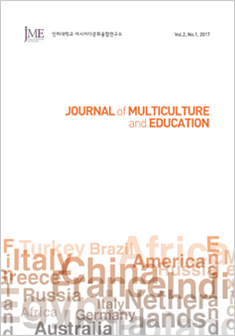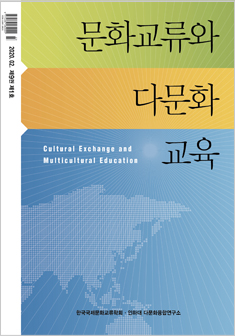
논문검색
HOME 학회지 논문검색
문화교류와 다문화교육, (2024)
pp.255~288
시민교육이 한국 청소년의 정치적 태도와 행동에 미치는 영향 : 2016 ICCS 설문자료를 중심으로
우리나라는 지난 공직선거법과 정당법의 개정을 통해 청소년의 정당 가입 및 투표가 허용됨에 따라 청소년에 대한 시민교육의 필요성이 어느 때보다 커지고 있다. 하지만 한국 청소년을 대상으로 시민교육이 시민적 행동과 태도에 미치는 영향을 체계적으로 분석한 실증 연구는 아직 부족하다. 본 연구는 변수의 체계적 설정, 자료의 다수준성, 변수 간 상대적 영향력 크기 및 국가 간 비교, 그리고 시민교육과 시민성 간의 순환적 인과관계 등을 고려한 다양한 분석을 통해 이 점을 보완하고자 하였다. 2016년 국제 시 민성 및 시민의식 비교조사 자료를 분석한 결과, 우리나라 청소년의 객관적 시민지식 측정 점수와 주관적 시민교육의 배움 정도 모두 일련의 시민적 태도와 행동에 긍정적 영향력을 미쳤다. 그리고 우리나라 청소년의 시민지식 측정 점수는 그 절대적 수준에 서도 다른 조사대상 국가들에 비해 높은 수준을 보였을 뿐 아니라, 그 영향력의 크기에 있어서도 상대적으로 강한 영향력을 보였다. 마지막으로 기존 연구에서 소홀히 다루어 진 시민교육과 정치행태 간의 순환적 인과관계를 고려한 구조방정식 분석에서도 이러 한 시민교육의 견고한 영향력이 재확인되었다. 이러한 연구결과는 우리나라 민주주의 의 발전을 위해 청소년 시민교육을 강화해야 할 분명한 필요성을 보여준다. 하지만 시 민교육의 배움 정도는 그 수준과 영향력이 다른 나라에 비해 특별히 강하지 않은 것으 로 나타나, 향후 다양한 과목을 통해 학생들 스스로가 주체적으로 시민성을 체득하는 방향으로 나아가야 함을 말해준다.
A Comparative Study of the Impact of Citizenship Education on the Behavior and Attitudes of South Korean Adolescents
This study investigates the impact of civic education on citizenship behavior and attitudes among South Korean youth, considering related variables, data’s multi-level nature, effects’ relative strength, cross-national comparisons, and the potential causal reciprocity between civic education and citizenship. Relying on the data from the 2016 ICCS study, I find that both civic knowledge test scores and students’ subjective learning of citizenship consistently positively influence a range of civic attitudes and behaviors, exhibiting stronger effects than other variables. Notably, South Korean youth’s civic knowledge scores not only reach a higher absolute level compared to other surveyed countries but also demonstrate a significantly stronger influence on citizenship. Lastly, structural equation models considering the causal reciprocity between civic education and citizenship reaffirm the robust influence of the former on the latter. These results emphasize the need to bolster civic education for South Korean youth to advance the country’s democracy. However, the subjective level of citizenship learning does not appear exceptionally strong compared to other countries. This suggests that South Korea’s secondary school civic education should empower students to acquire citizenship through diverse subjects from school, going beyond mere knowledge acquisition.
 다문화와 교육(Journal of Multiculture and Education)
다문화와 교육(Journal of Multiculture and Education) 문화교류와 다문화교육
문화교류와 다문화교육